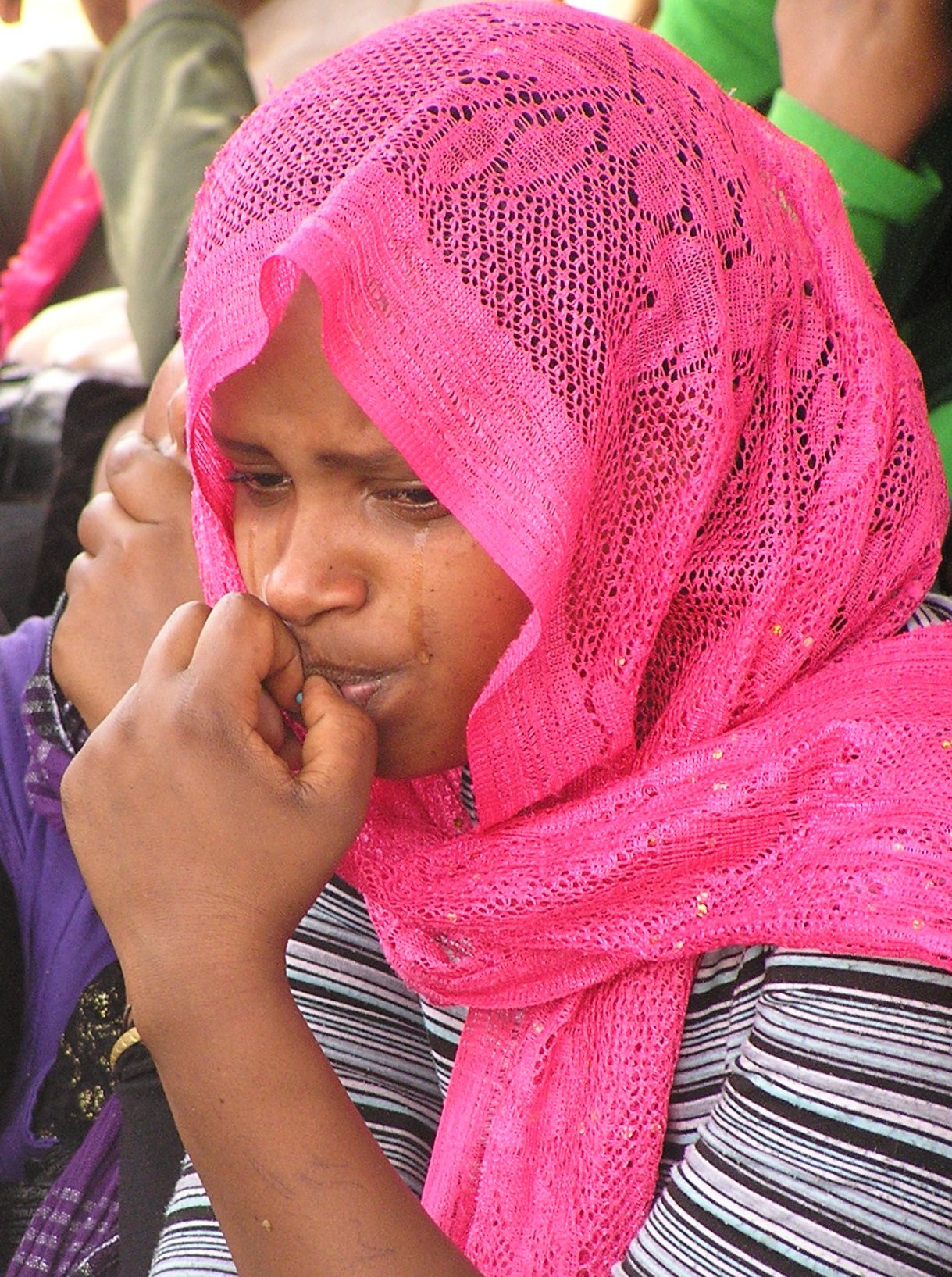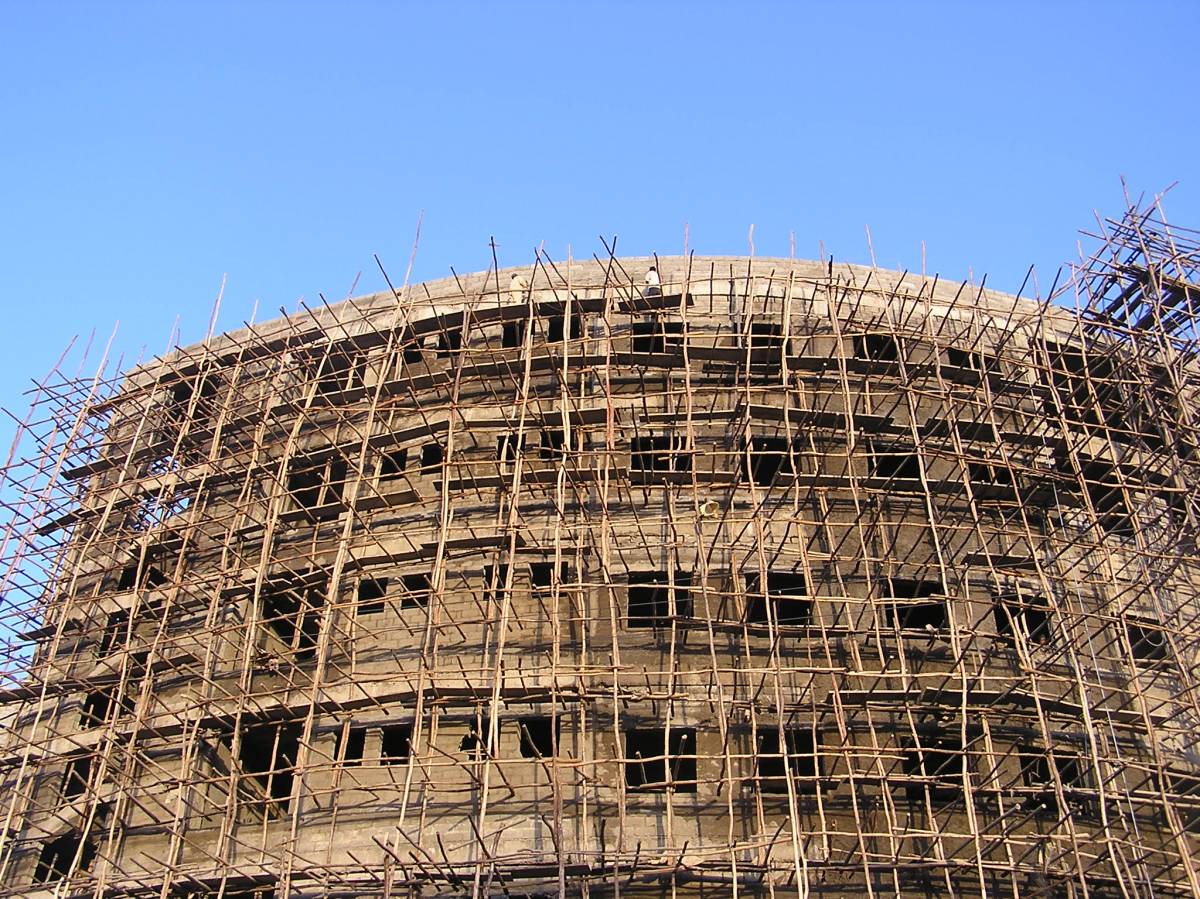
Posts by BetreYacob:
Girls Suffering from Trafficking in Ethiopia
August 31st, 2012By Betre Yacob.
These are what traffickers and their local agents, brokers, often told rural girls in Ethiopia, who are in a critical social-economical problem: “You will get a good job in Sudan; you will be attractive paid and you will enjoy life as well as get out your families from poverty …” Nevertheless, the reality the trafficked girls eventually face during their illegal journey to the country they have thought to be ‘heaven’ is extremely horrible.
During their journey to Sudan, which crosses a vast desert, many girls lost their lives, many get raped and robbed, and become subjected to several human rights violations.
Even if they reach Sudan and get a job, they can’t escape from abuses such as long working hours, unbearable workload, having to work in other households, restricted movement and isolation, inability to change employers, lack of leisure, denial of wages, and irregular payment of wages. Their freedom of movement and communication outside the household is also restricted through confiscation of passports and work permits.
Recently, I have been in Metema, an Ethio-Sudan border town, and witnessed the considerable human trafficking in there and its horrifying feature. During my two days stay I visited more than 200 victims of serious human rights violations. And most of them told me their horrifying history.
Teshome Lemelem is an 18 year old girl and came from Oromia Region looking for a better life. She has been captured by the Sudan police while she was trying to enter Khartoum. She says a group of traffickers would come and repeatedly rape her and her friends.
“Not only rape, they took all our money and other properties by force; they left those who were unable to walk because of the long journey and hunger in the endless desert and let them die; they beat us when we walk slowly.”
She also says two of her friends were missing when she awakened one morning.
According to the resident of Metema, a border town, from 200 up to 500 girls, including children, are daily trafficked to Sudan and other Arab countries illegally.
Link: http://ethiopiahot.wordpress.com/2012/05/22/human-trafficking-suffering-rural-girls-in-ethiopia/
The Ethiopian Daily laborers’ Fear: Accident
August 31st, 2012By Betre Yacob.
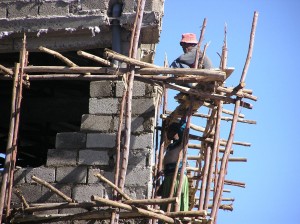 Abera is a 30 year old young man who works as a day laborer in a building construction company. He came from Estie Woreda, South Gonder Zone, Amhara Region. Daily he transports cement, stone and other raw materials up and down high rise buildings under construction.
Abera is a 30 year old young man who works as a day laborer in a building construction company. He came from Estie Woreda, South Gonder Zone, Amhara Region. Daily he transports cement, stone and other raw materials up and down high rise buildings under construction.
“I have several times suffered from serious workplace accidents,” Abera said while trying to show the big scar found on his right back.
“Once while I was transporting stone to the second floor of building, the old scaffold, which I was walking on, broken down and let me fall down to the ground, where there were stones and pieces of wood …”
All over Ethiopia millions of daily laborers work in big constrictions in an unsafe working environment and without supportive and protective equipment. They don’t have protective caps, gloves, eye coverings, work clothes, shoes, etc. They work on high-rise buildings standing on old and inclined wooden scaffolds and ladders, they even transport heavy construction materials on them. Moreover, the constructions do not have safety nets and restraint and fall arrest systems. As a result, like Tessema, a dozen of the daily laborers get different serious injuries. Many, in fact, lose their lives.
In a recent scaffold collapse accident I witnessed in city of Bahir Dar, the capital of Amhara Region, for instance, 18 young, female daily laborers have died, while many others have serious injury.
Like many other female daily laborers, Aster, who I found in one construction site, was working while dressed in her regular traditional clothing. This cloth is challenging to walk in even on a flat ground.
“Eight months ago,” Astier said, “while I was transporting cement, my dress tackled my leg and I fell down from the first floor of the building to the ground and was seriously injured … If I had been on the fourth floor of the building, I would have died …”
Surprisingly, although Abera and Aster sustained the accidents while they were on duty, they did not receive any compensation from their employers. Even their medical bills were not covered.
“I didn’t know about the right to claim such benefits, this is why I didn’t claim …” Abera said.
The right of labor is declared with detail obligations of employers in the ‘Ethiopian Labor Proclamation No 377- 2003’. The proclamation explains that an employer must take appropriate steps ranging from instructing or notifying employees concerning the hazards of their respective occupations to provide workers with protective tools, clothing and other safety equipment. It also requires employers to pay the full salary of an employee for three months from the date of injury, 75pc for the next three months after that, and 50pc for the next six months.
But unfortunately this legal document, according to the existing working environment and situation of daily laborers, seems to have been just a bookshelf decoration of the Ministry of Social and Labor Affair, justice bodies, and construction companies.
According to the 2009 Audit Report of the International Labour Office, a lack of recognition amongst the judges of inspectors’ rights to take legal proceedings and low level of fines for Labor law contraventions are the reasons for the poor enforcement of the law.
Link: http://ethiopiahot.wordpress.com/2012/03/03/the-ethiopian-daily-laborers-fear-accident/
International NGOs are Forced to Amend their Projects in Ethiopia
August 31st, 2012HIV Vulnerable Groups’ Associations are Ending up Helpless
By Betre Yacob.
The Ethiopian government, following the new approved Charities and Societies Proclamation (NGO law), has screened out international NGOs which have had human right related project activities in the country, and given them a strict order to amend their projects. Following this, many NGOs including those working to halt HIV pandemic are forced to remove every human right related activities from their projects and even to change their human right based HIV/AIDS prevention and control approach.
One working in an international NGO working in the county, on HIV/AIDS prevention and control, said that the measure taken by the government is clearly destructing the standing human right based HIV/AIDS prevention and control work that has recently shown an encouraging change on the prevalence of the epidemic.
“We are cancelling all our project activities related to the rights of the most at risk groups such as women, sex workers, daily laborers and housemaids. Though there is no any other better and proven approach than human right based approach, to protect these groups from HIV/AIDS, we are about to change it.”
Following the measure, different local vulnerable groups’ associations pulling together with NGOs towards addressing their vulnerability to HIV/AIDS through promoting their socio-economic and political rights are facing a serious challenge to keep their effort. It is becoming impossible for them to get financial and technical support from their partners or NGOs.
The Ethiopian government claims that the law is aimed at ensuring “the realization of citizens’ rights to association enshrined in the constitution… as well as …to aid and facilitate the role of [civil society] in the overall development of the Ethiopian people.” But on the contrary the law has blocked all human rights activities in the country including the human right based HIV/AIDS prevention and control activities. Under the law enacted on January 6, 2009 that criminalizes most human rights work in the country, international organizations based outside the country are barred from doing any human rights-related work in Ethiopia.
According to UNAIDS Ethiopia has an estimated two million people living with HIV and the third highest number of infections in Africa. Although the prevalence rate may be decreasing, HIV still remains the leading health problem of Ethiopian. Several studies indicate that some parts of the community which are commonly exposed to different human rights violations (such as: women, daily laborers, housemaids, and sex workers) are the particularly vulnerable groups within the country.
A Look at the ‘Funniest’ Feature of Political parties in Ethiopia
August 31st, 2012By Betre Yacob.
I think no one can run from the naked fact that there is economic disparity between the ruling political parties and their opponents in Ethiopia. The following two pictures clearly show this actual feature of the parties: the opposition party is economically poor and its counterpart is very rich and powerful.
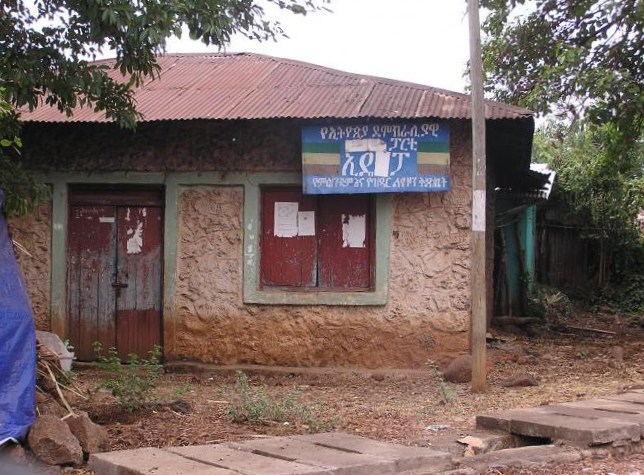
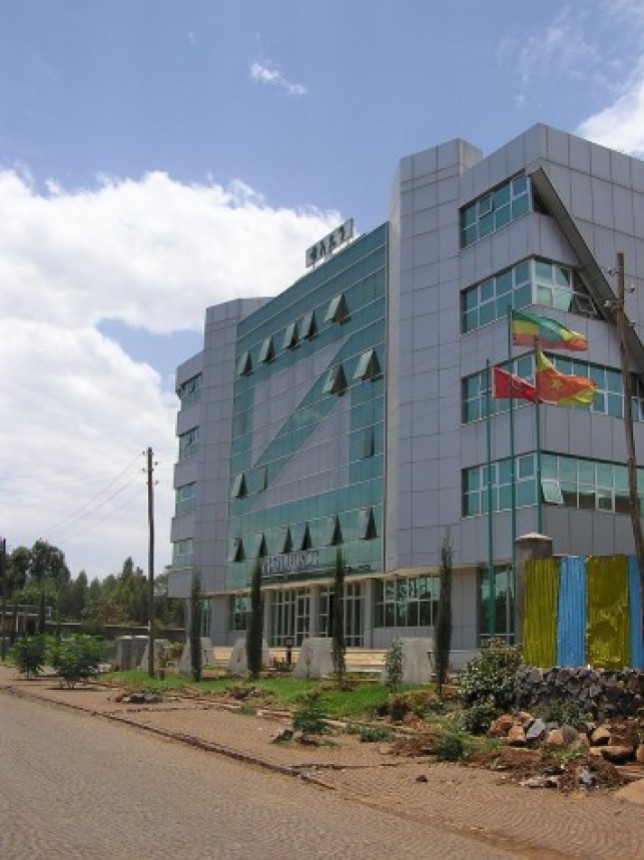
The former picture shows the office building of the Ethiopian Democratic Party (EDP), one of the known opposition party in Ethiopia, whereas the later one shows the office building of the Amhara National Democratic Movement (ANDM), the ruling party in the region.
As you see in the former picture, the EDP’s office building is very old. Truly, unless one sees the old and faded banner on the wall, it is challenging to realize that the building is an office of a political party working to represent millions of people. When you get into the very old office, you may get more confused and ask yourself: is it actually the office of the party? How are they working without necessary office facilities? By the way let me tell you what is more amazing. Just the front rooms of the building are occupied by the EDP. The other rooms are occupied by the family who owns the house.
When we come to the other one, things are absolutely different. The building is so modern, attractive and inviting. One who sees the building can easily realize how costly it is. It resembles western buildings. It has modern car parking that is decorated with flowers. The parking is always busy with very expensive new model cars are housed. Close to the main gate of the building, there is a small room, but much better than that of the EDP’s office, for security people. The internal part of the building is well organized for office service; individual rooms are well furnished and equipped with 21th century office equipments. Telephones, broadband connection, modern lighting and water systems are well installed. Generally, the building clearly reveals the stronger financial capacity of the party.
The questions I would like to raise are:
1) Why is there such a big difference between the two parties?
2) How can competition be made between them?
Link: http://ethiopiahot.wordpress.com/2012/05/14/a-look-at-the-funniest-feature-of-political-parties-in-ethiopian/



